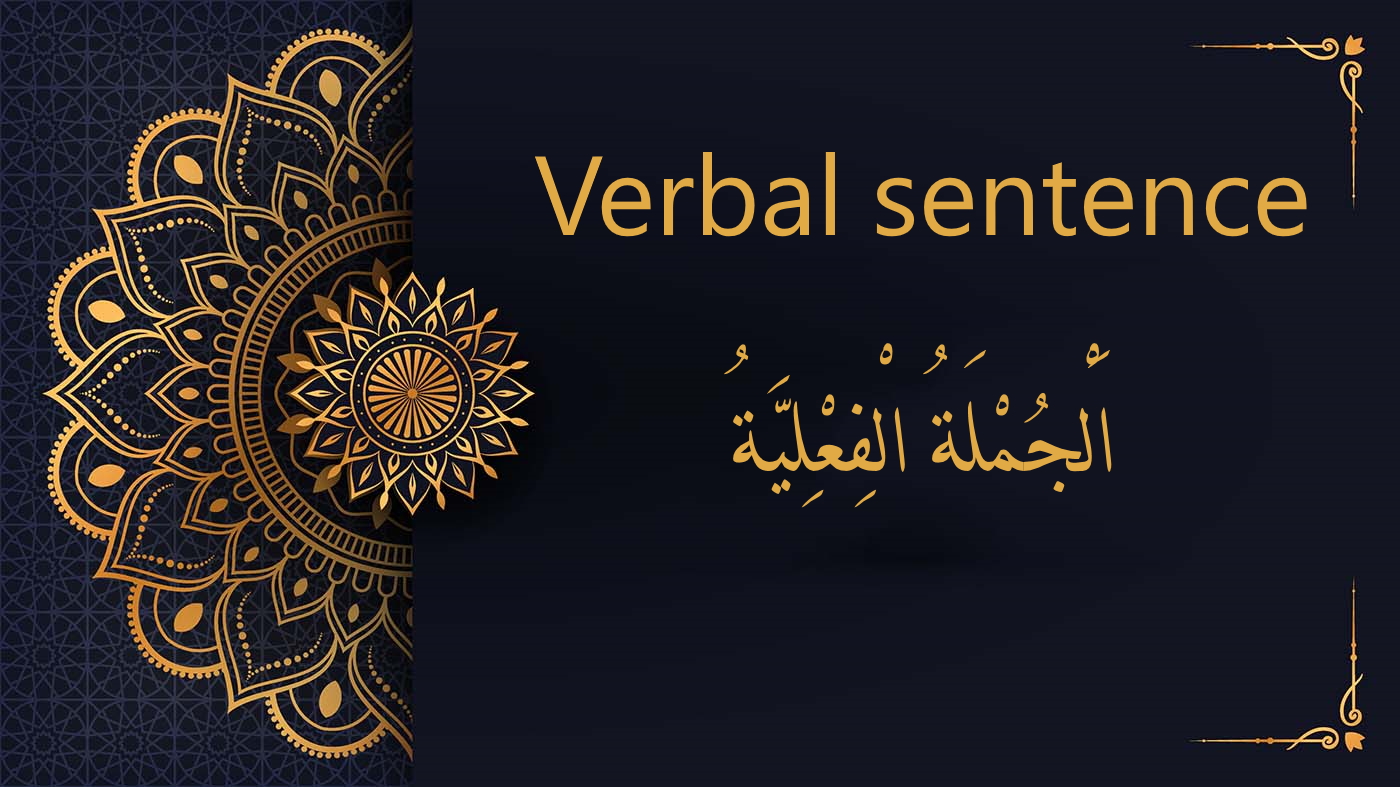
Verbal Sentence in Arabic - الجملة الفعلية
Introduction
In the context of a verbal sentence in Arabic, the sentence typically commences with a verb. This foundational structure plays a crucial role in understanding Arabic sentence construction.
For instance:
وَقَتَلَ دَاوُودُ جَالُوتَ
and David killed Goliath (2:251)
جَالُوتَ
Object
دَاوُودُ
Subject
قَتَلَ
Verb
1. Understanding the Structure of Verbal Sentences: Verb, Subject, and Object Order
In the realm of linguistics, a verbal sentence is a fundamental construct that encompasses three key components: a verb, a subject, and an object. This trifecta of elements forms the structural foundation of such sentences.
Traditionally, within the framework of verbal sentences, it is customary for the verb to take the lead, occupying the initial position in the sentence. Subsequently, the subject and the object follow in sequence. This conventional order of arrangement is a defining characteristic of verbal sentences, shaping their syntax and imparting clarity to the intended meaning. Understanding this structure is paramount in grasping the intricacies of language and effective communication.
Within the context of a verbal sentence, both the subject and the object are represented by nouns. The subject, referred to as اَلْفَاعِلُ, consistently assumes a nominative state, characterized by the presence of a dammah or tanween dammah. For instance, consider the noun دَاوُودُ.
On the other hand, the object, known as اَلْمَفْعَلُولٌ بِهِ, consistently adopts an accusative state, identifiable by the inclusion of a fatha or tanween fatha. For illustration, consider the noun جَالُوتَ.
It is noteworthy that when a noun is used following a preposition, it transitions into the genitive state, marked by a kasrah or tanween kasrah, as part of the حَالَةُ الْجَرِّ (genitive case). This grammatical transformation ensures precision in conveying relationships within sentences.
Examples:
قَالُوا آمَنَّا بِاللَّـهِ وَحْدَهُ
they said,” We believe in Allah alone” (40:84)
ذَهَبَ اللَّـهُ بِنُورِهِمْ
Allah took away their light (2:17)
2. Pronoun Integration in Arabic Sentences: A Verb-Centric Approach
Pronouns do not necessitate separate mention as subjects in Arabic sentences, as they are inherently integrated into the structure of the verb itself.
For example:
خَلَقْتُ
I created
In خَلَقْتُ, the hidden pronoun is “I.”
وَإِذْ فَرَقْنَا بِكُمُ الْبَحْرَ فَأَنجَيْنَاكُمْ
And [recall] when We parted the sea for you and saved you (2:50)
In فَرَقْنَا, the hidden pronoun is “we.”
3. Inherent Pronoun Integration: A Key Feature of Arabic Sentence Structure
When the object assumes the form of a pronoun, it conventionally comes before the subject in the sentence structure following the verb.
لَّا يَتَكَلَّمُونَ إِلَّا مَنْ أَذِنَ لَهُ الرَّحْمَـٰنُ وَقَالَ صَوَابًا
they will not speak except for one whom the Most Merciful permits, and he will say what is correct. (78:38)
4. The Use of Feminine Singular Verbs with Broken Plural Non-Human Subjects
When the subject takes the form of a broken plural consisting of non-human objects, it necessitates the use of a feminine singular verb.
أُولَـٰئِكَ الَّذِينَ حَبِطَتْ أَعْمَالُهُمْ فِي الدُّنْيَا وَالْآخِرَةِ
They are the ones whose deeds have become worthless in this world and the Hereafter (3:22)
5. Subject-Verb Agreement in Arabic: Singular Verbs and Verb Concordance
When the subject is explicitly provided in a sentence, rather than being represented as a hidden pronoun, a singular verb is employed, regardless of the subject’s number (singular, dual, or plural). If a second verb is necessitated, it must align with the subject in question.
وَأَذِنَتْ لِرَبِّهَا وَحُقَّتْ
And has responded to its Lord and was obligated [to do so] (84:2)
عَلِمَتْ نَفْسٌ مَّا أَحْضَرَتْ
A soul will [then] know what it has brought [with it]. (81:14)
رَفَعَ سَمْكَهَا فَسَوَّاهَا
He raised its ceiling and proportioned it. (79:28)
Conclusion
This lesson on Arabic nuances concludes here. Insha’Allah, our subsequent session will delve into the Verbs with fixed prepositions.
Al-dirassa Institute invites you on a linguistic journey with our expert teachers to master the Arabic language. Should you wish to further your studies, we welcome your inquiries.
Chosen and Trusted by Thousands of Satisfied Learners
Discover the experiences of our delighted clients who have thoroughly enjoyed utilizing this standout feature.
Alhamdulillah I‘m very pleased with the arabic and Qur’an lessons I receive from teacher Umm Tasneem and I‘m also content with the al-dirassa administration team who were very quick in answering any questions I had. In a month I progressed a lot and I cannot wait to continue my studies with al-dirassa. May Allah reward everyone at al-dirassa.
 Verified review - view original
Verified review - view original
My Qur’an teacher is fantastic, she teaches me in a loving and kind way where I look forward to the lessons and learn so much. My Arabic teacher is equally as nice and has a lot of patience with me, she has great expertise in the field and I’ve progressed really quickly with her. Thank you Al-dirassa!
 Verified review - view original
Verified review - view original
Book your free trial lesson
Don’t want to go through the translation anymore?
30 free minutes with your qualified Egyptian teacher.




